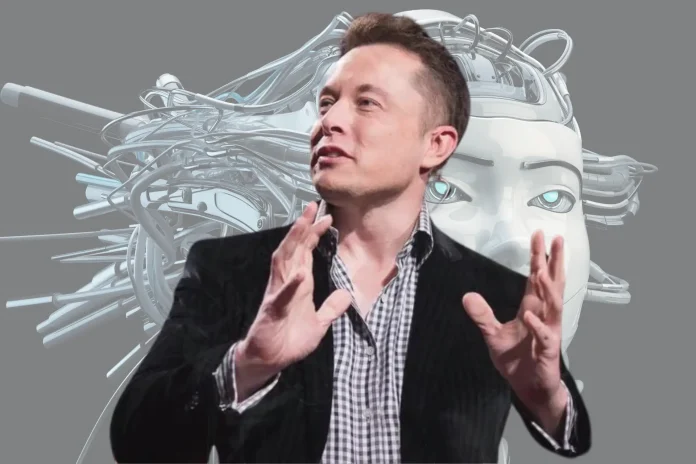Billionaire entrepreneur Elon Musk, known for his bold and ambitious ventures, has started discussions about the future of robotics with his recent statement. He endorsed a new idea that might change how we perceive the world’s future. One billion humanoid robots will be walking the Earth by the 2040s; this Elon Musk humanoid robots assertion raises both excitement and concerns about the potential impact of such a significant technological advancement.
Prediction of Elon Musk Humanoid Robots Taking Over
While Elon Musk’s prediction might sound like science fiction, it isn’t entirely baseless. His own company, Tesla, is actively developing a humanoid robot called Optimus, showcased in 2021 to eventually produce millions of these robots at an estimated price of $20,000 each. Still in its early stages, Optimus has already demonstrated high skills in basic human tasks like walking and folding laundry.
But Musk’s endorsement goes beyond Tesla’s journey. He suggested a similar prediction made by David Holz, founder of the AI research lab Midjourney, who envisions one billion robots and a potential hundred billion dispersed across the solar system by the 2060s. This paints a picture of a future heavily twisted with advanced automation, prompting questions about its implications for society, the economy, and even human identity.
Advancements in AI and Robotics
Several factors contribute to the accessibility of Musk’s prediction. Firstly, significant progress has been made in artificial intelligence (AI), particularly in machine learning and computer vision. These advancements are essential for robots to navigate complex environments, understand and respond to instructions, and make decisions independently.
Secondly, robotics technology itself is experiencing rapid development. Improvements in materials science, actuator design, and sensor technology lead to robots with more extraordinary ability, mobility, and efficiency. Companies like Boston Dynamics, Agility, and Honda, alongside Tesla, are actively pushing the boundaries of what robots can achieve.
A Helping Hand for Humanity
Supporters of widespread robot adoption highlight several potential benefits. Robots could take over dangerous or repetitive tasks, reducing risks for human workers and allowing them to focus on more creative and cognitively demanding jobs. Automation could also boost productivity and efficiency across various industries, leading to economic growth and freeing resources for other adventures.
In healthcare, robots could assist with surgery, elder and disabled care, and rehabilitation, providing invaluable support and potentially improving the quality of life for many. In unsafe environments like space exploration or deep-sea exploration, robots could act as pioneers and researchers, paving the way for future human exploration.
Challenges and Ethical Considerations
However, the prospect of a billion robots like Optimus raises critical concerns that need careful consideration. One primary concern is job displacement. While some new jobs might be created in robots’ design, development, and maintenance, others could need to be updated, particularly in manual labor or manufacturing. This raises questions about social safety nets, reskilling programs, and ensuring equitable distribution of the benefits of automation.
Another significant concern is the ethical development and use of robots. Issues like robot autonomy, decision-making algorithms, and potential biases need careful research to ensure robots serve humanity without creating risks or perpetuating inequalities. Solid regulations and ethical frameworks are crucial to guide the development and deployment of robots responsibly and beneficially.
Whether Elon Musk humanoid robots take over the world by 2024 prediction comes true remains to be seen. However, it serves as a powerful reminder of the rapid pace of technological advancement and the significant impact it could have on our future. The key lies in approaching this future proactively, shaping the development and deployment of robots to benefit humanity, addressing potential challenges, and ensuring a future where humans and robots coexist happily. Musk cautioned that this future depends on the “stability of the foundations of civilization.” We must act responsibly and collaboratively to ensure that the rise of robots serves as a positive step forward for all.



